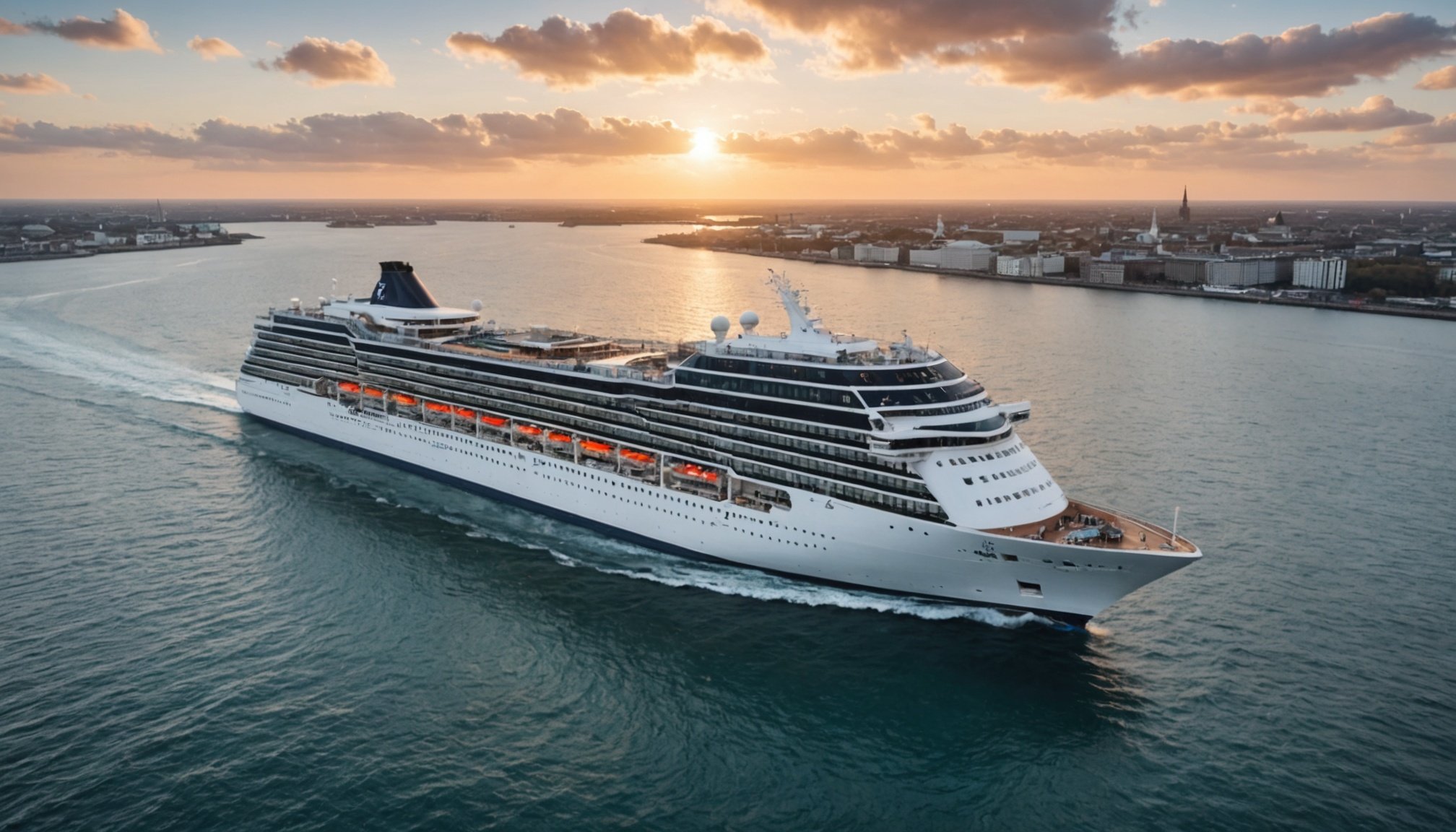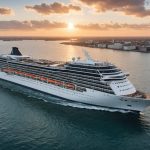Overview of Global Challenges Affecting UK Cruise Tourism
The UK cruise tourism challenges are deeply intertwined with the broader global economic impact reshaping travel behavior. Recent economic downturns have notably reduced disposable income, leading to decreased passenger demand for cruises. Consumers increasingly prioritize essential spending, making the luxury or leisure focus of cruises less accessible.
Moreover, ongoing geopolitical tensions have created travel restrictions that directly affect popular cruise routes from the UK. Sanctions, border controls, and diplomatic disputes force cruise lines to alter itineraries, often resulting in longer travel times or omitted destinations. These shifts can frustrate passengers seeking specific experiences, thereby affecting overall booking levels.
Additional reading : What Are the Most Scenic Spots to Explore on a UK Cruise?
Environmental and health concerns remain critical. The cruise industry’s heightened awareness of environmental impact leads to stricter regulations and operational changes. The lingering effects of pandemics have instilled public caution around cruise travel, with enhanced health protocols now standard. This change influences both traveler confidence and operational costs, posing sustained challenges.
Understanding these cruise industry trends is essential for stakeholders aiming to navigate the complex landscape and foster resilience within the UK’s cruise tourism sector.
Also to see : How can you enjoy a themed cruise experience around the UK?
Impact on the UK Cruise Industry
The UK cruise market analysis reveals notable shifts driven by recent global challenges. Passenger numbers experienced a significant decline as restrictions curtailed travel and health concerns discouraged bookings. Despite a gradual recovery, data indicates that passengers remain cautious, influencing booking behaviours and preferences.
Route changes have become common, with some traditional ports experiencing fewer visits to adapt to evolving demand. Many operators are restructuring itineraries to focus on more popular or accessible destinations, which directly affects port call frequencies and local economies relying on cruise tourism.
Economic effects on operators are pronounced. Reduced passenger volumes result in diminished revenues, while ports have faced decreased income from port fees and local spending by tourists. Local economies, particularly those heavily dependent on cruise tourism, have encountered challenges, including job losses and reduced business for hospitality and retail sectors.
Simultaneously, consumer preferences are shifting. There is an increased interest in shorter cruises and domestic routes, as well as enhanced health and safety measures influencing booking decisions. These evolving trends suggest the UK cruise industry must continue adapting operations and marketing strategies to recover fully and thrive.
Strategies for UK Cruise Tourism Resilience
Small
The cruise industry strategies in the UK focus heavily on diversification and innovation to boost resilience amid fluctuating travel conditions. One key approach is the expansion of itineraries emphasizing domestic cruising opportunities. Offering routes along the British coastline not only attracts local tourists but also mitigates risks associated with international travel restrictions. This approach keeps the sector active and accessible to a wider audience.
Furthermore, shipping companies have increased their investment in health, safety, and environmental practices. Enhanced sanitation protocols and eco-friendly technologies ensure safer voyages and align with growing consumer demand for sustainable tourism. These improvements contribute to rebuilding passenger confidence, a critical factor for reviving the cruise sector.
Collaboration plays a vital role in this recovery phase. The sector is working closely with government bodies and other industry partners to implement support measures and create adaptable policies. Such partnerships promote shared resources and coordinated responses, which are crucial for the rapid recovery and long-term stability of UK tourism resilience and the broader cruise industry.
Case Studies and Success Stories
Exploring real-world examples in cruise tourism recovery
Several UK cruise success stories highlight how the sector has adapted amid global challenges. Leading cruise lines in the UK have implemented industry best practices including enhanced health protocols and flexible booking policies, enabling them to regain passenger confidence swiftly. For instance, some operators focused on contactless experiences onboard, ensuring safety without compromising enjoyment.
Regional ports have played a pivotal role in the recovery by embracing innovation. Ports in cities such as Southampton and Liverpool invested in improving infrastructure and digital technologies to streamline operations and handle increased traffic efficiently. Their adaptability has made these hubs models in cruise tourism recovery.
Crisis management has been another critical aspect. Successful companies emphasized transparent communication and contingency planning, enabling them to navigate uncertainties effectively. One notable example involves a UK cruise line quickly adjusting itineraries to comply with changing travel restrictions, demonstrating responsiveness and operational resilience.
These cases collectively reveal that a combination of proactive health measures, technological adaptation, and strategic crisis management embodies the industry best practices driving the UK’s ongoing cruise tourism recovery.
Expert Insights and Policy Developments
In the evolving landscape of the cruise sector, cruise industry expert opinions spotlight the importance of adaptive strategies aligned with the UK cruise policy. Executives emphasize that government support remains crucial to navigating post-pandemic recovery challenges. Enhanced safety protocols and sustainability goals are central to recent policy frameworks aiming to bolster consumer confidence.
Government initiatives increasingly focus on stimulating growth while maintaining environmental safeguards. Key collaboration between policymakers and industry stakeholders has led to targeted investments in port infrastructure and digital innovations. These measures reflect a commitment to long-term market stability, an aspect repeatedly highlighted by tourism boards and travel analysts alike.
Current policies also encourage international cooperation to harmonize regulations, facilitating smoother operations for cruise lines. Experts note that continuous feedback loops between the government and cruise companies are instrumental in refining approaches that address both economic and ecological concerns.
By integrating these insights, the UK cruise industry is positioned to foster sustainable expansion. This blend of proactive policy and expert-driven initiatives underpins a resilient framework that benefits travelers, operators, and communities.
Future Outlook for UK Cruise Tourism
The UK cruise tourism future looks promising with industry forecasts indicating steady passenger growth. Post-pandemic recovery has accelerated demand, with more travelers eager to explore cruise holidays. Analysts project an expansion in the market as British consumers seek diverse itineraries and unique onboard experiences.
Emerging trends highlight a shift towards sustainable cruising, with ships incorporating greener technologies. Innovations such as hybrid power systems and waste reduction are becoming standard, reflecting consumer preference for eco-friendly options. Additionally, the rise of personalized services and technologically advanced ships is enhancing passenger comfort and engagement.
Long-term opportunities include tapping into new markets and extending cruise seasons beyond summer, capitalizing on the UK’s strategic position for Northern European and transatlantic routes. However, potential risks like economic fluctuations, regulatory changes, and environmental challenges remain. Operators must remain agile and invest in adaptability to sustain growth.
By understanding these dynamics, stakeholders can better navigate the evolving landscape of UK cruise tourism and capitalize on its expansion while addressing emerging obstacles. This forward-looking perspective is critical for maintaining the sector’s momentum and ensuring resilient recovery.





